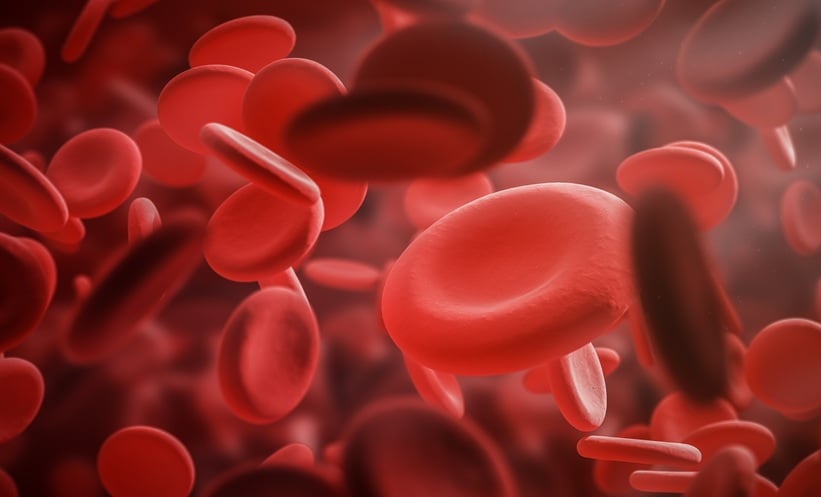A STUDY has revealed that chronic myeloid leukaemia (CML) patients with the e13a2 BCR-ABL1 transcript type respond less effectively to imatinib therapy compared to those with the e14a2 transcript.
Researchers retrospectively reviewed the records of 69 patients from a regional cohort, identifying differences in clinical characteristics and treatment outcomes between the two transcript groups. Patients with the e13a2 transcript were, on average, significantly younger (45 years vs 54.5 years) and presented with higher white blood cell counts but lower platelet counts compared to those with the e14a2 transcript—indicating distinct biological differences between the two groups.
When treated with imatinib, only 17.6% of patients in the e13a2 group achieved an optimal molecular response at 12 months, compared to 50% in the e14a2 group. Additionally, patients with the e13a2 transcript type were slower to reach deep molecular responses, such as MR4 or MR4.5.
“These findings suggest that transcript type could influence treatment outcomes in CML, and highlight the importance of tailoring therapeutic strategies to the underlying biology of the disease,” the authors concluded.
The study underscores the need for closer monitoring of patients with the e13a2 transcript and suggests that alternative tyrosine kinase inhibitors may need to be considered for improved outcomes.
Reference
Greenfield G et al. Response to Imatinib therapy is inferior for e13a2 BCR-ABL1 transcript type in comparison to e14a2 transcript type in chronic myeloid leukaemia. BMC Hematol. 2025;DOI: 10.1186/s12878-019-0139-2.








